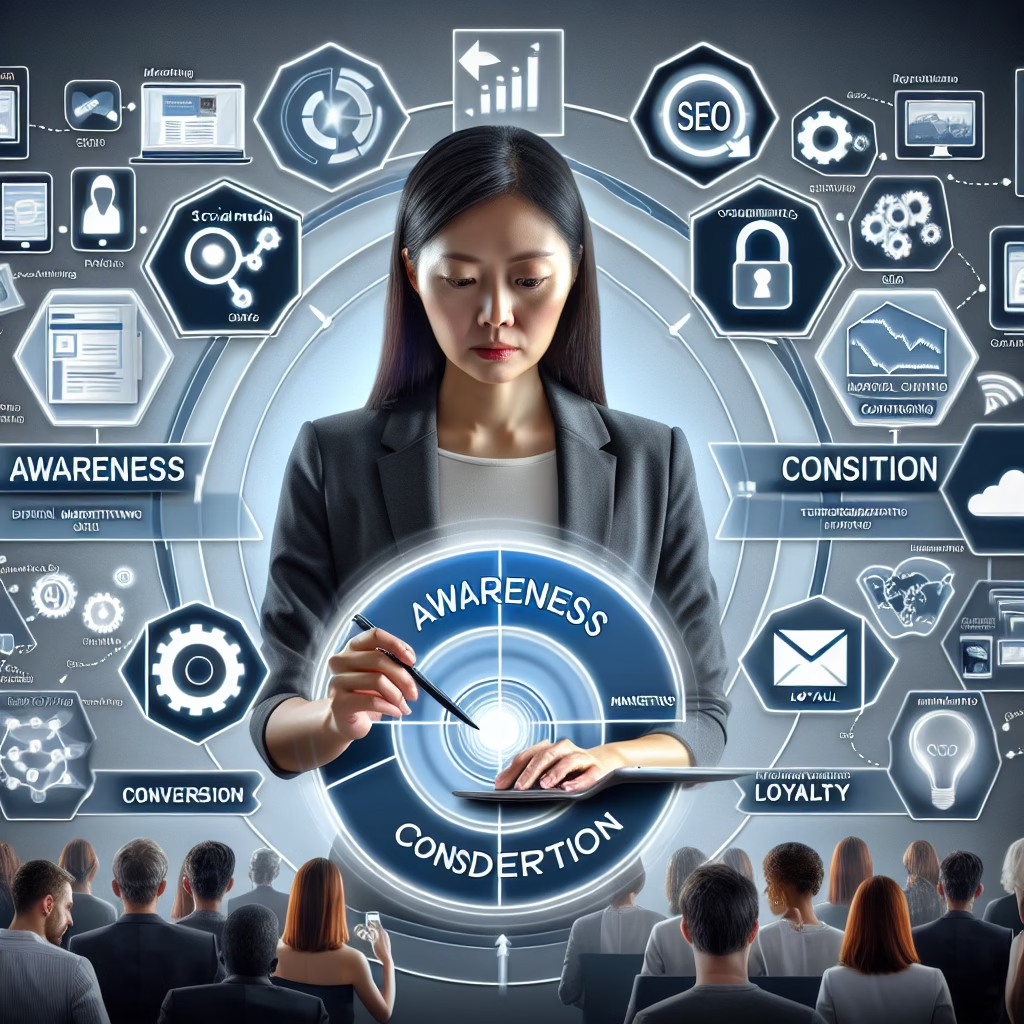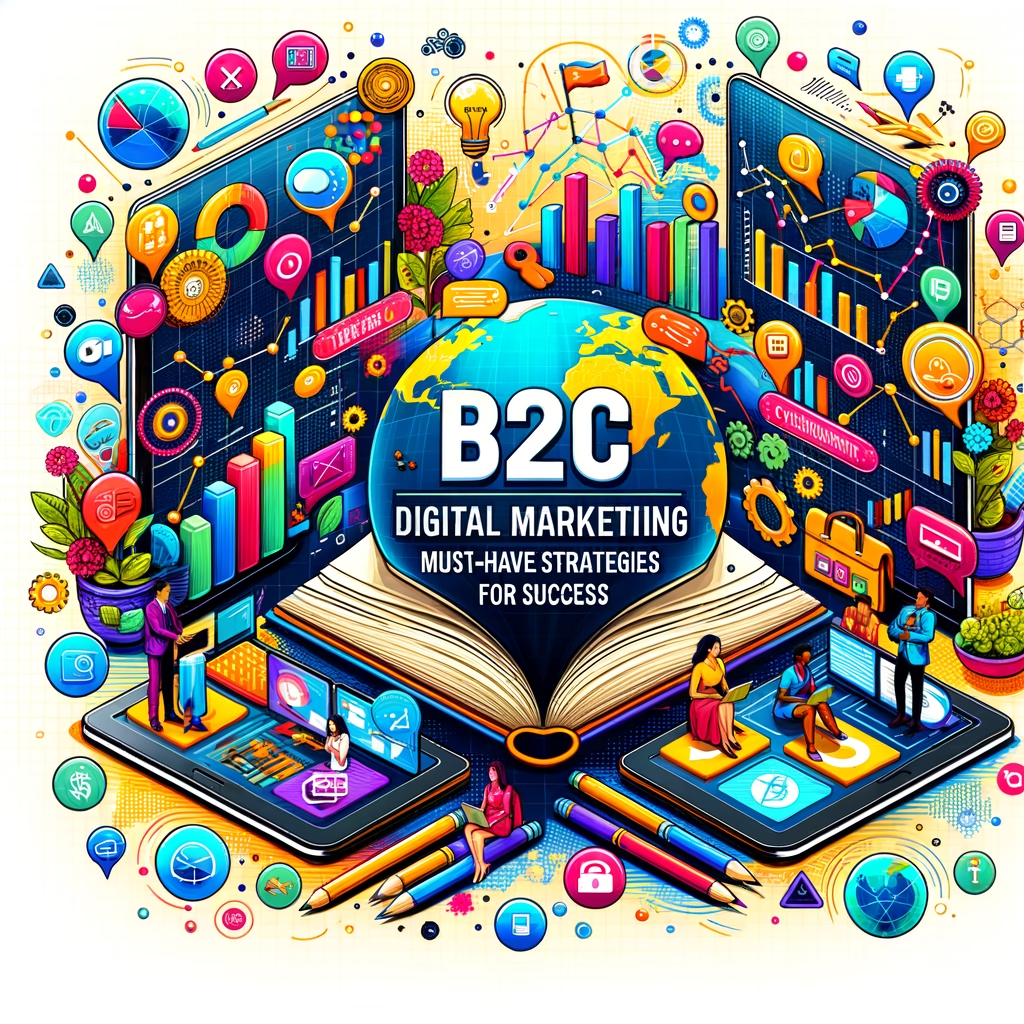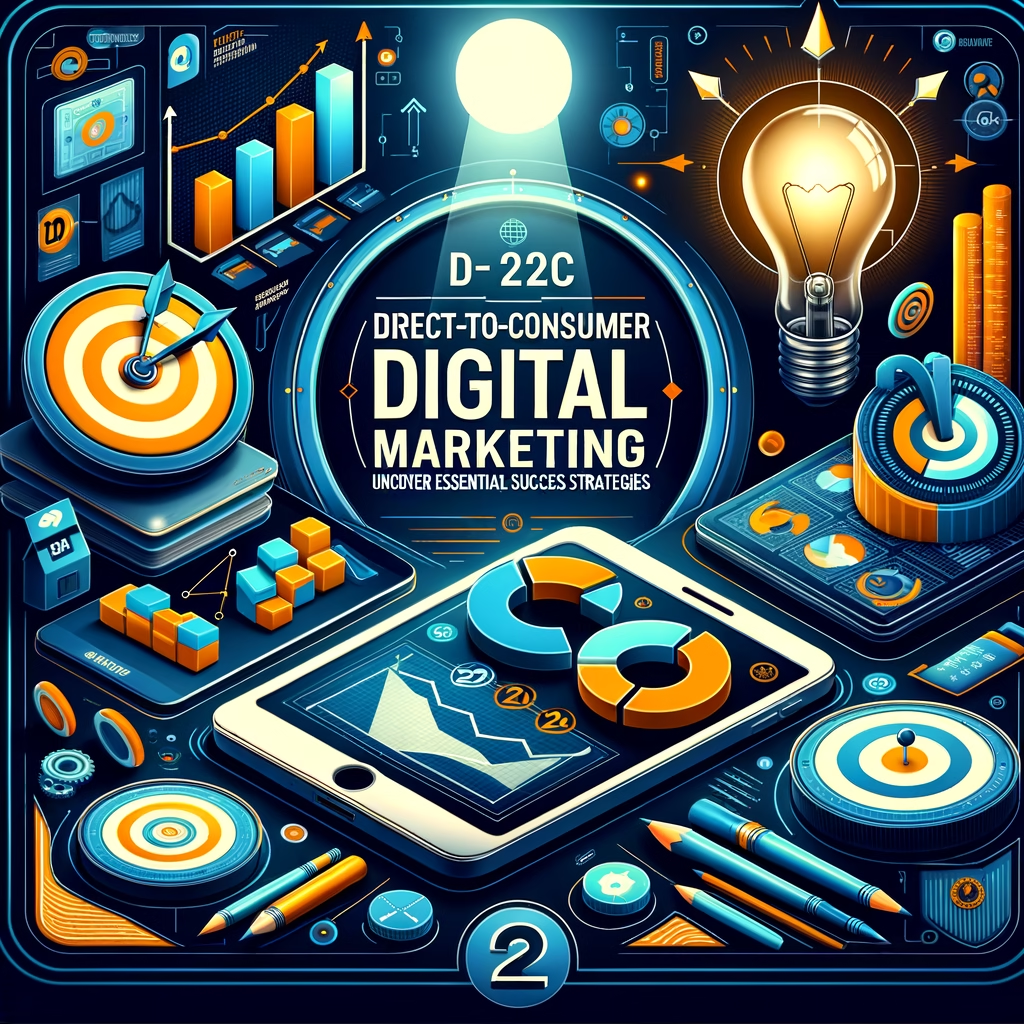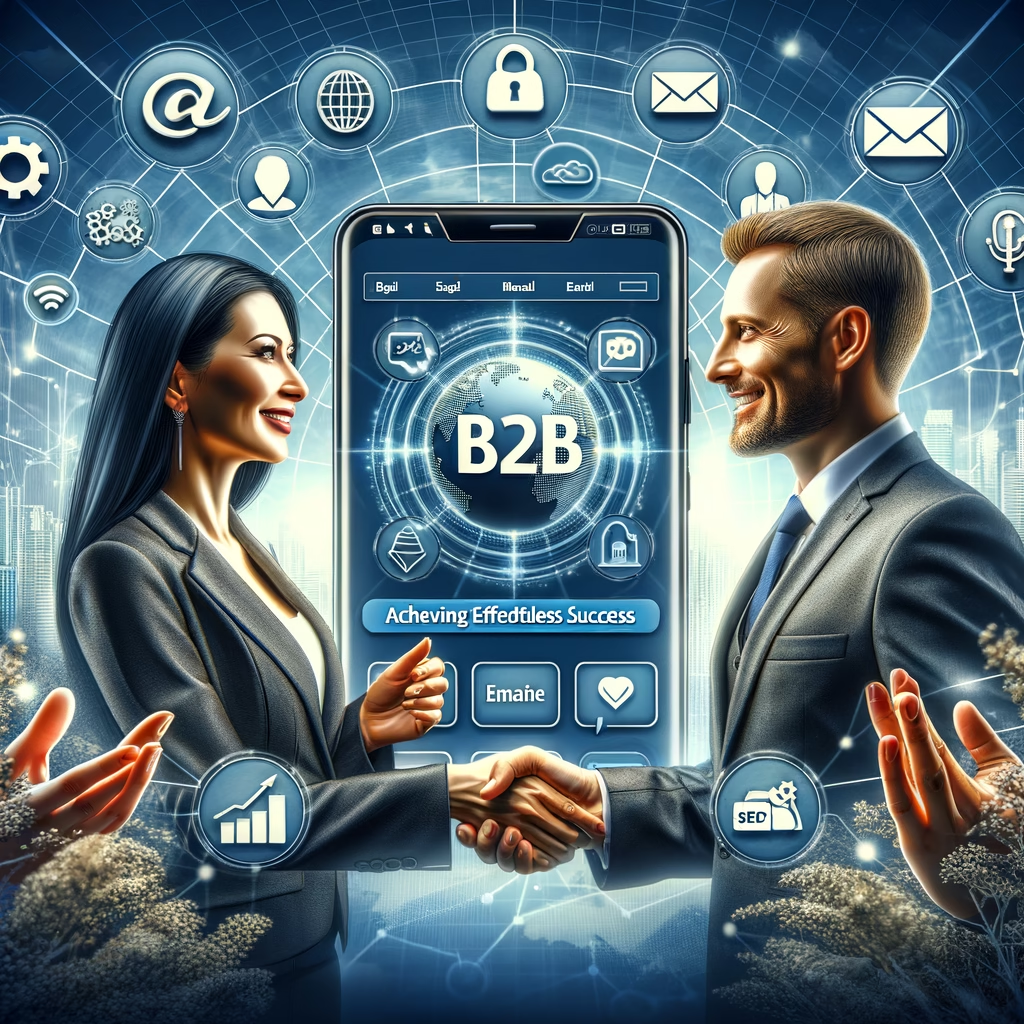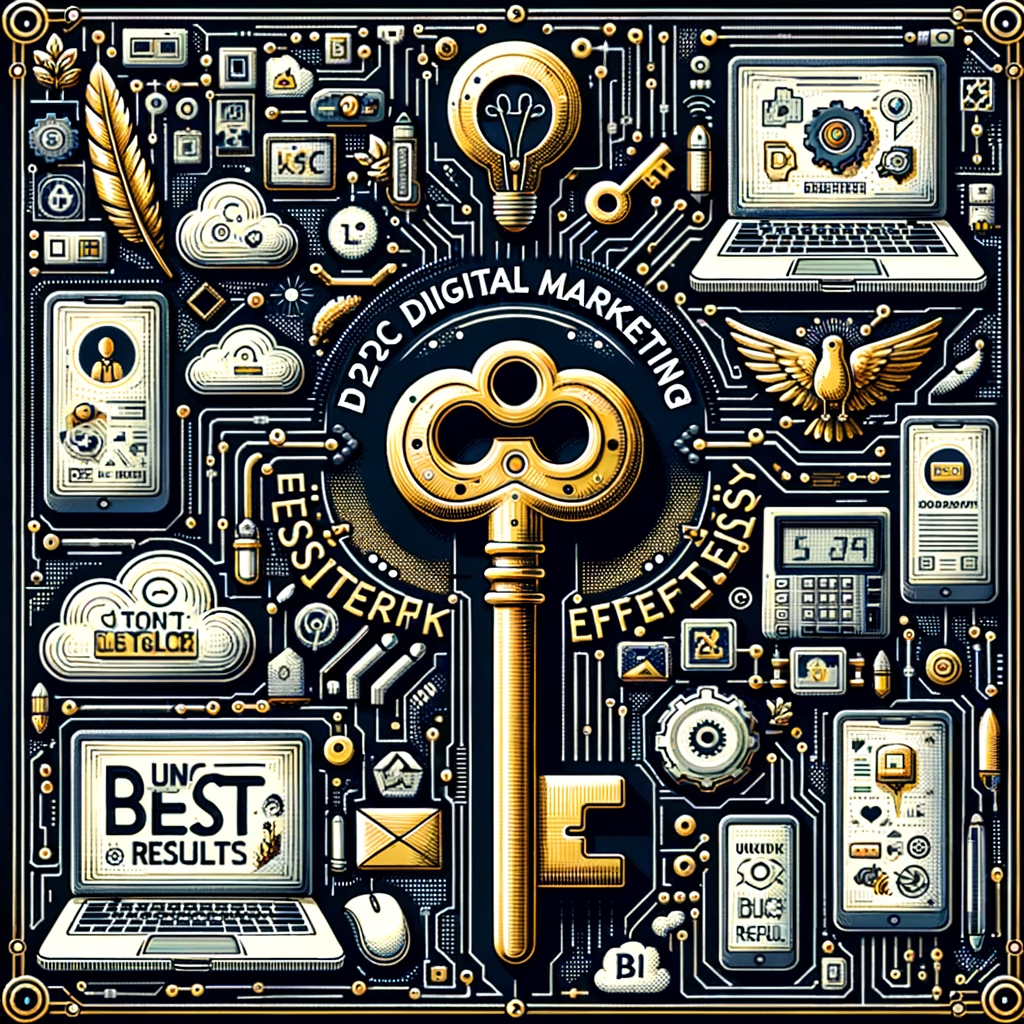- Understanding Personalization
- Why Personalization Matters in B2C Marketing
- Improved Customer Experience
- Increased Engagement
- Boosted Conversion Rates
- Enhanced Loyalty and Retention
- Implementing Personalization Strategies
- Data Collection and Analysis
- Segmentation
- Dynamic Content
- Predictive Analytics
- Personalized Communication
- Challenges in Personalization
- Privacy Concerns
- Balancing Personalization and Intrusion
- Data Quality
- Case Study: Amazon’s Personalization Mastery
- Tools for Personalization in B2C Marketing
- CRM Systems
- AI and Machine Learning
- Marketing Automation Platforms
- Future of Personalization in B2C Marketing
- Conclusion
Topic: B2C Digital Marketing: Must-Have Strategies for Success
Today’s Focus: Personalization in B2C Digital Marketing
—
Personalization: A Key Strategy for B2C Digital Marketing Success
Personalization is revolutionizing B2C digital marketing, transforming how businesses engage with their customers. In a world where consumers are constantly bombarded with generic marketing messages, personalization stands out as a crucial strategy for success. By tailoring content to individual preferences, desires, and behaviors, companies can create a more meaningful connection with their audience.
Understanding Personalization
Personalization involves customizing the customer experience based on individual user data. This strategy is not just about addressing customers by their first name; it extends to offering personalized product recommendations, content, emails, and even website experiences. The goal is to make each interaction relevant to the user, thereby increasing engagement and loyalty.
Why Personalization Matters in B2C Marketing
Improved Customer Experience
Personalization enhances the customer experience by making interactions more relevant and efficient. Customers appreciate when businesses anticipate their needs and provide solutions specifically tailored for them. This not only improves satisfaction but also encourages repeat business.
Increased Engagement
When marketing messages resonate with personal interests, consumers are more likely to engage. Personalized emails, content, and offers have higher open and click-through rates, leading to increased interaction with the brand.
Boosted Conversion Rates
By presenting products and services aligned with customer preferences, businesses can significantly improve conversion rates. Personalized product recommendations can drive sales by suggesting items that customers might not have discovered otherwise.
Enhanced Loyalty and Retention
Consumers who feel understood by a brand are more likely to develop a lasting relationship with it. Personalization helps build this connection, fostering loyalty and improving customer retention rates.
Implementing Personalization Strategies
Data Collection and Analysis
The foundation of personalization is a robust data collection and analysis system. Businesses need to gather information about customers’ demographics, browsing behavior, purchase history, and preferences. This data can be sourced from various touchpoints, including websites, mobile apps, and social media.
Segmentation
Once data is collected, segmentation is crucial. Grouping customers into segments based on shared characteristics allows marketers to target each segment with specific messages and offers. This approach ensures that the content is tailored without requiring individual customization.
Dynamic Content
Incorporating dynamic content on websites and emails is a powerful way to deliver personalized experiences. Dynamic content adjusts in real-time based on user data, presenting information that is most relevant to the visitor, thus enhancing engagement and conversion rates.
Predictive Analytics
Leveraging predictive analytics helps in anticipating future customer behavior based on historical data. By understanding potential future actions, businesses can proactively offer relevant suggestions and promotions, further personalizing the experience.
Personalized Communication
Personalized communication involves using customer data to tailor messages across various channels. This includes sending personalized emails, crafting bespoke social media messages, and offering custom promotions. Tools like AI and machine learning can help automate and refine this process.
Challenges in Personalization
Privacy Concerns
With the rise of personalization, there are growing concerns about data privacy. Consumers are increasingly aware of how their information is used and demand transparency and security. Businesses must comply with data protection regulations like GDPR and ensure data is collected and used ethically.
Balancing Personalization and Intrusion
While consumers value relevant content, there is a fine line between being helpful and being intrusive. Over-personalization or excessively targeted advertising can lead to discomfort. Companies must strive for a balance that provides value without overstepping boundaries.
Data Quality
Effective personalization depends on high-quality data. Inaccurate or outdated information can lead to irrelevant and ineffective personalization efforts. Regular data audits and updates are essential for maintaining the accuracy of personalization strategies.
Case Study: Amazon’s Personalization Mastery
Amazon is a pioneer in personalization, exemplifying how powerful this strategy can be. From personalized product recommendations to customized homepages, Amazon uses data-driven personalization to create a seamless shopping experience. By analyzing customer purchase history and browsing behavior, Amazon suggests relevant products, keeping customers engaged and increasing the likelihood of purchase. This personalized approach significantly contributes to Amazon’s status as a leader in the e-commerce industry.
Tools for Personalization in B2C Marketing
CRM Systems
Customer Relationship Management (CRM) systems help businesses track and analyze customer interactions. They are integral in storing customer data, managing relationships, and facilitating personalized communication strategies.
AI and Machine Learning
Artificial Intelligence (AI) and machine learning enable advanced personalization by analyzing vast amounts of data for patterns and preferences. These technologies can automate personalization efforts, making them scalable and efficient.
Marketing Automation Platforms
Platforms like HubSpot, Marketo, and Mailchimp offer automation features that allow for the delivery of personalized content at scale. These tools streamline the process of segmenting audiences and sending targeted communications based on user behavior.
Future of Personalization in B2C Marketing
As technology evolves, the future of personalization in B2C marketing looks promising. Developments in AI, machine learning, and data analytics will continue to enhance personalization strategies, enabling even more granular and effective customer interactions. Businesses that adapt to these changes, embracing innovative personalization techniques, will be well-positioned for success in the digital landscape.
Conclusion
Personalization is a must-have strategy in B2C digital marketing, offering significant benefits in customer experience, engagement, conversion rates, and loyalty. By leveraging data to deliver tailored experiences, businesses can differentiate themselves in a competitive marketplace, ensuring lasting customer relationships and sustained growth. As technology continues to advance, the potential for even deeper personalization will grow, presenting exciting opportunities for marketers to explore.
